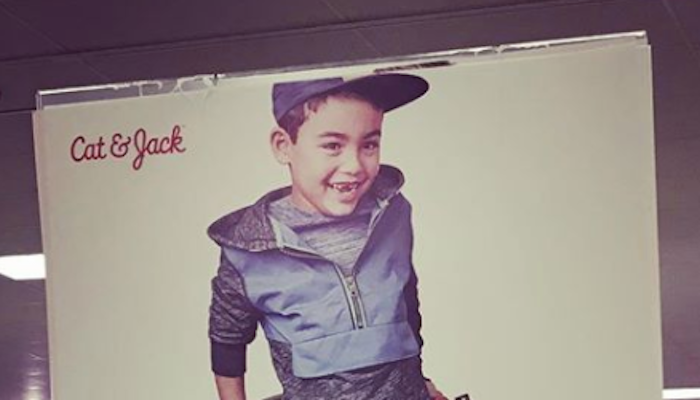- Study Says Most Parents Don’t Use Car Seats In Ride Share Vehicles Like Uber
- This 12-Year-Old Boy Is A Sophomore Aerospace Engineering Major!
- Fire Safety Experts Warn Of Hand Sanitizer Danger After A Mom and Kids Escape House Fire
- Recall Alert: Peaches May Be The Cause Of Salmonella Outbreak, 68 People Ill
- Summer Vacation In The Days Of COVID: Tips To Stay Safe
- How To Safely Grocery Shop During The Coronavirus Pandemic
- Michigan Teen With Vape-Related Illness Undergoes Double Lung Transplant
- Teen Kicks Off Anti-Vaping Campaign From Hospital Bed
- Teenager Receives Life Sentence For Strangling Sister To Death Over A Wi-Fi Password
- Toddler Falls To Death From 11th Deck of Cruise Ship
Boy’s Reaction To A Target Ad Proves Just How Much Inclusion Matters


This boy’s reaction to a Target ad shows us just how much diversity in advertising makes a difference
When Jamie Sumner and her 6-year-old son Charlie went to Target last week, she thought that it would be for the usual specials and cup of coffee, but when Charlie saw a Cat & Jack ad in the kids’ clothing section, both were so moved that they’ve been back to Target three times in a week just to look at it!
As Sumner told her story in Her View From Home, the duo were just doing their regular shopping when Charlie, who has cerebral palsy and uses a wheelchair, started laughing, clapping and signing, “more.”
The Mother glanced up at what he was looking at to see a clothing ad with a boy about Charlie’s age, dressed in trendy hoodie and cap and using a walker.
“I watched Charlie watch the sign,” she wrote in the post. “I watched the recognition of kin for kin, like for like. And it was beautiful. Yes, I started crying in the aisle. Yes, other people stopped and looked. And then they looked at the sign and they smiled. It was such an unexpected moment of connectedness among strangers in the middle of Target in the middle of a week on an otherwise ordinary day.”
The pair stopped back to look at the sign 3 times that day, and Charlie has since added a “Target” button to his speaking device.
“Seeing a child around my son’s age in camo pants and cap who also just happens to have a walker means so much to me, but it meant so much more to my son,” Sumner said.
“It was the first time we had seen his experience ‘normalized’ on such a large scale-level. I’ve always loved Target — it’s the place I go to buy all the things I need and all the things I don’t — and to see that they’re recognizing people of all abilities is a big deal.”
Sumner, who has written a book called Unbound about her parenting journey and the unrealistic expectations of motherhood, explained how this single image made such a difference.
“I spend so much mental, emotional, and physical effort making sure Charlie is included at school, at church, on the playground, and at the restaurant,” Sumner wrote, “that it was with a surreal sense of relief that I realized here, at least, he already was. It was like finding that Caroline Cart at Kroger or that handicap swing at the park—it was evidence that someone had gone before and made a way for us. Not everything had to be hard. We did not always have to be the first to break boundaries or forge a new path through the jungle of the able-bodied world. For once, a track had already been laid.”
Seeing their “normal” in a kids’ clothing ad was enough to make them stop and really take it in. The ads in the store really captured what is normal: kids of different abilities, enjoying life (and wearing cute clothes).
“As a writer for Parenting Special Needs Magazine I’ve seen ads like this before,” Sumner says, “but not on this scale where it would reach the big wide world in a way that my son would notice. I hope it continues. I hope this is just the beginning of advertisements like these that celebrate differences. Now, of course, I want to see more! I want to see kids with leg braces and in wheelchairs and with hearing aids and speaking devices and sensory headphones — the whole gamut of what the real world looks like.”
She concluded: “I love that this ad took me by surprise and delighted Charlie. Maybe one day we’ll reach the point where it won’t be such a surprise though. Maybe it will be as ordinary as anything else. Wouldn’t that be lovely?”
We definitely think so.




0 comments